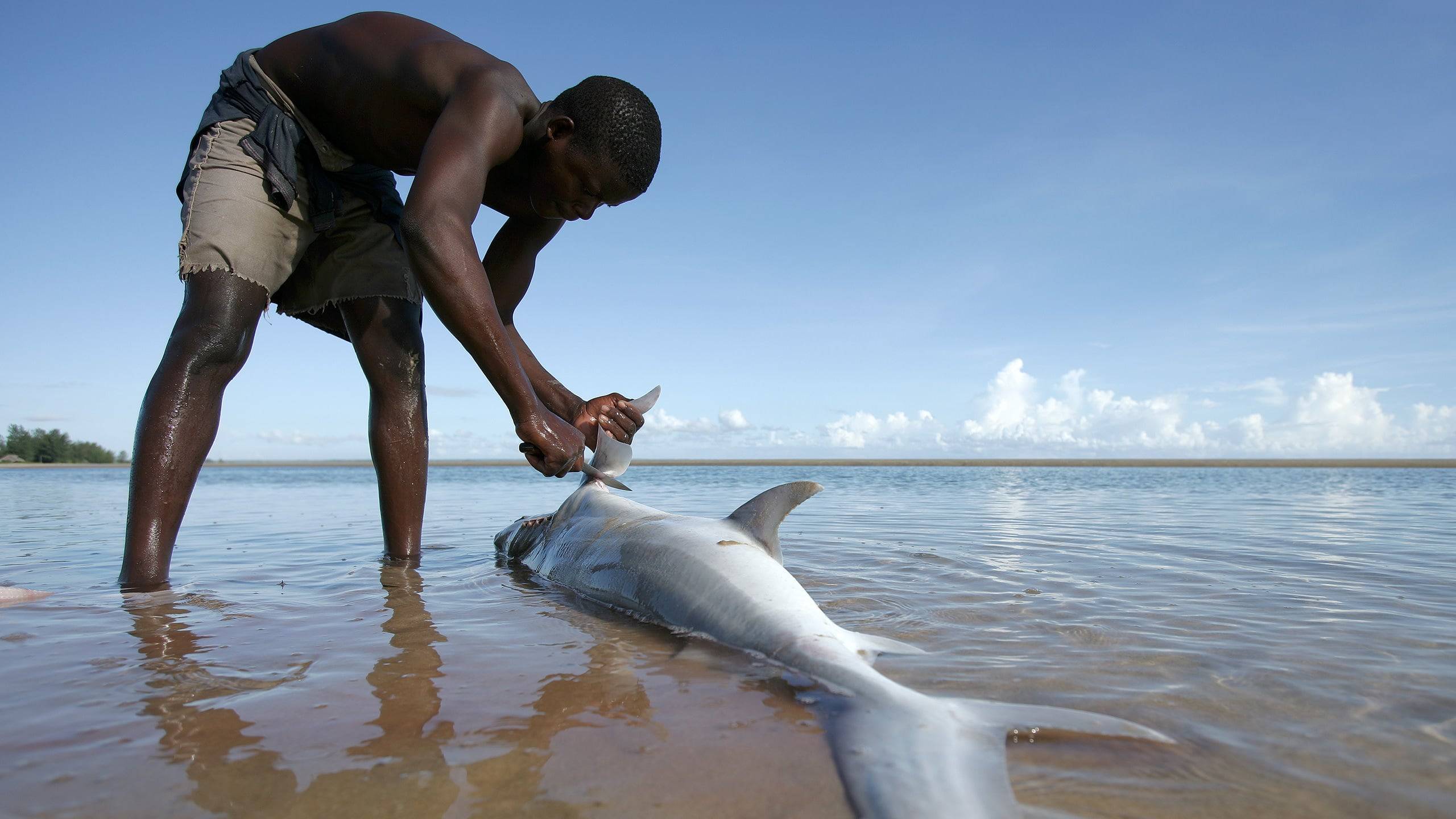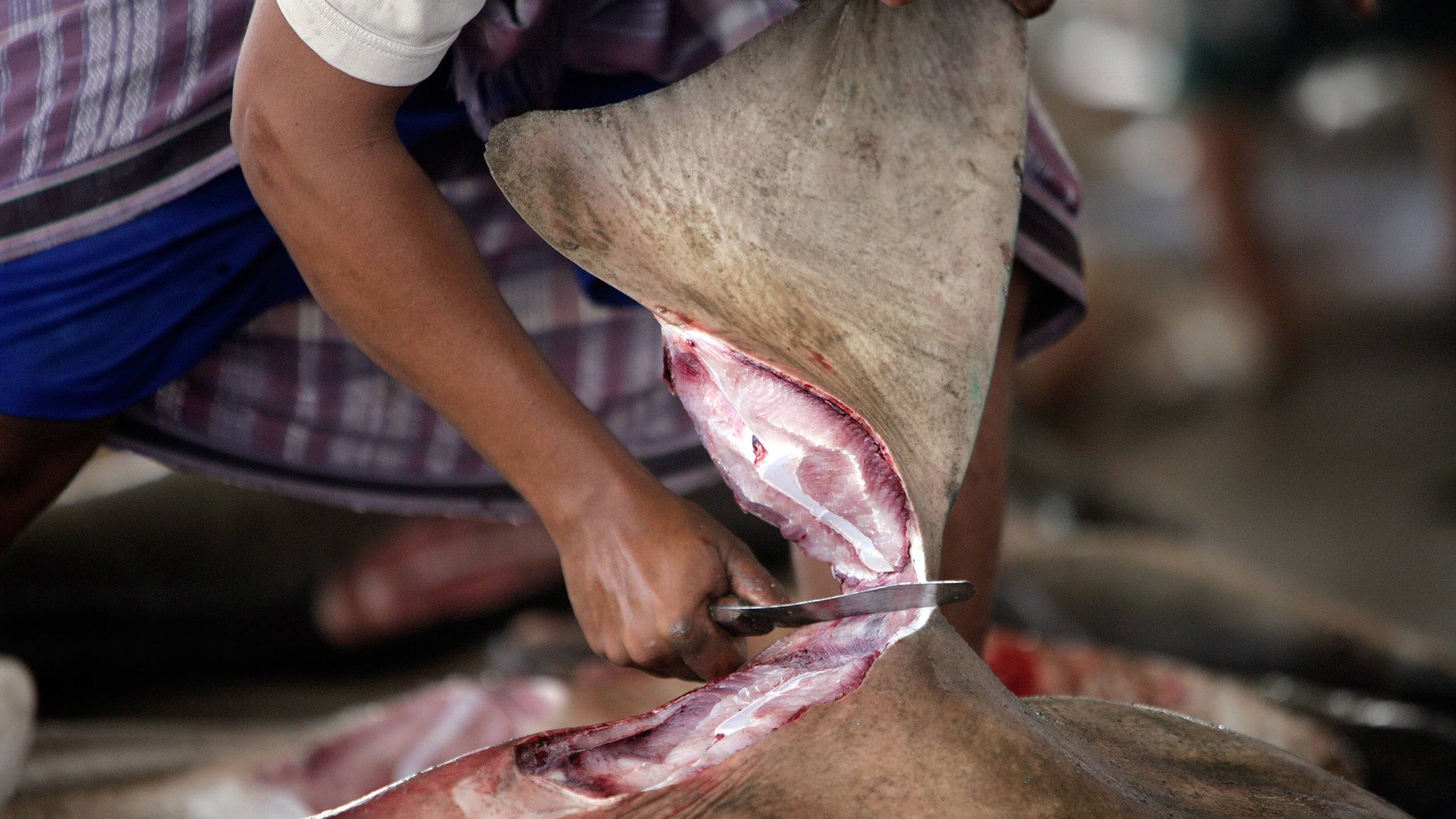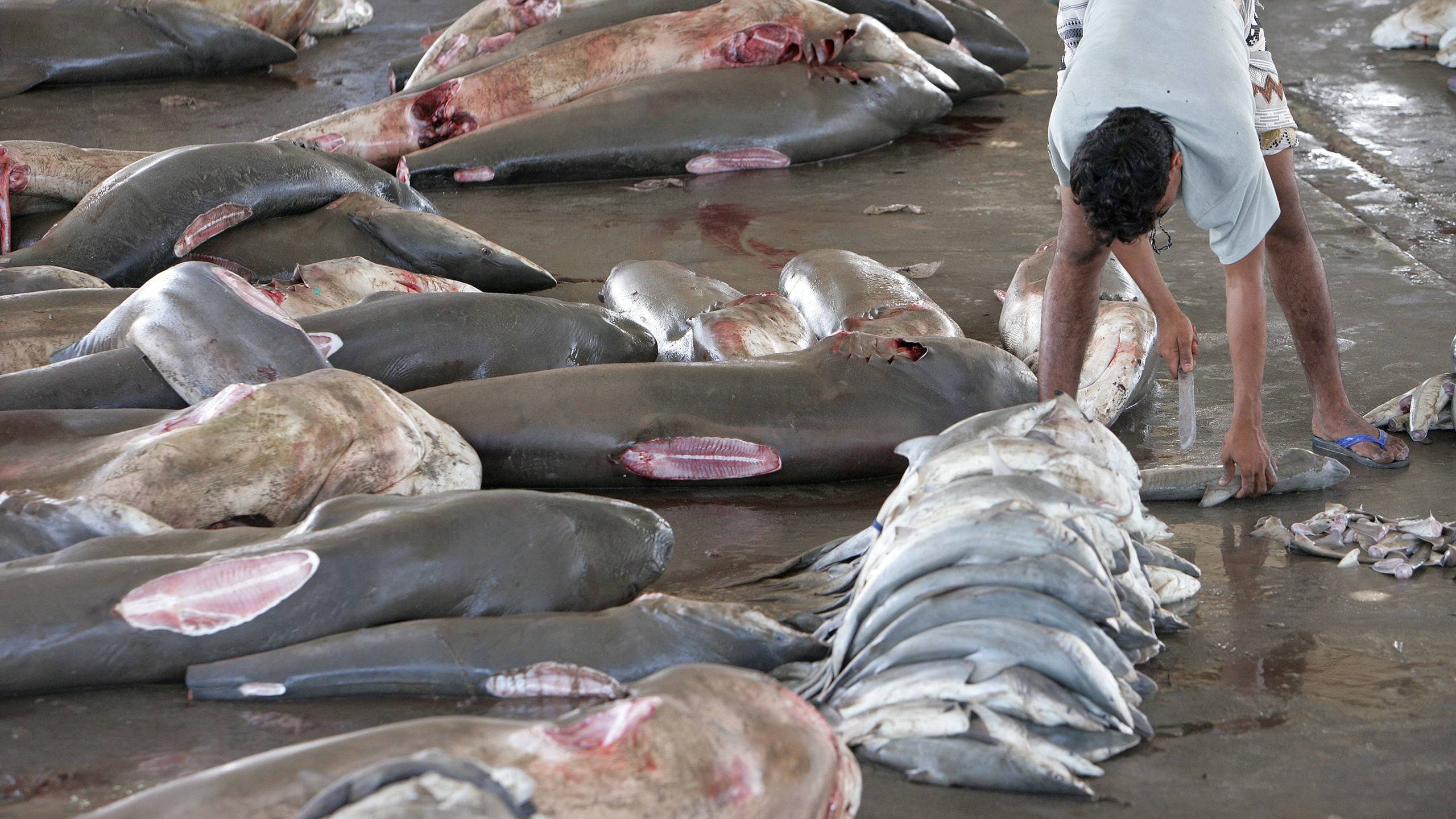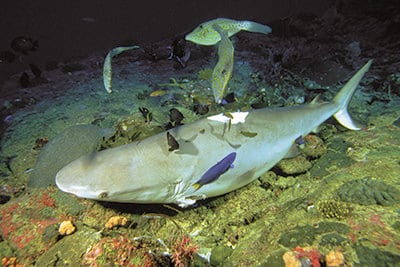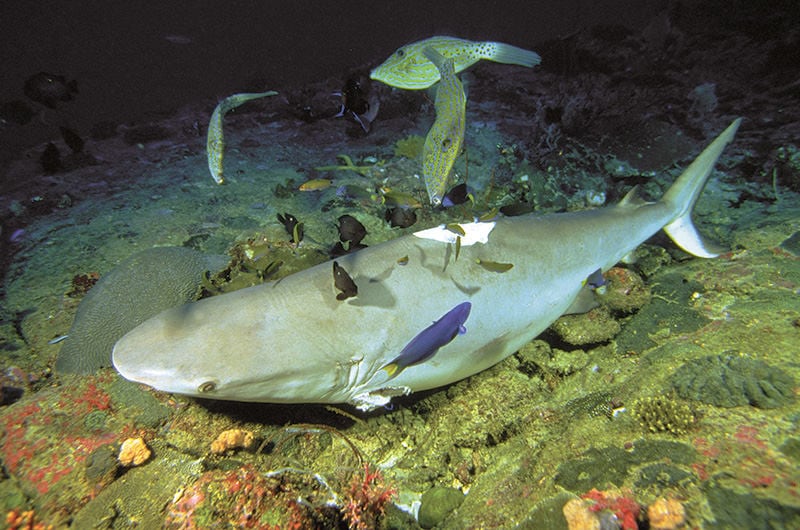Finning
Fins from 73 million commercially caught sharks are destined primarily for Asian shark fin markets. Finning is the cruel method of cutting off a shark's fins, often while it is still alive. The body of the shark is then thrown overboard as excess ballast. Since the sharks that are still alive can no longer swim, they suffocate miserably.
It is estimated that 73 million of the 100 million commercially caught sharks land in primarily Asian fin markets. This means that only 25% of the caught sharks are really used sensibly, e.g. because of their meat.
Some countries have adopted strict "fins attached" regulations to reduce the overexploitation of shark stocks and put an end to cruel finning. Sharks may only be brought ashore if their fins are still attached to their bodies. But many countries do not know such regulations, or they are circumvented.
Shark fins make up only about 14% of the total weight of a shark, but bring in much more on the international market than the rest of the shark. Finning is cruel and wasteful but lucrative. In Asia an average of more than 100 US dollars are paid for a kilo of shark fins, for a bowl of shark fin soup up to 400 dollars.
Some countries have established shark protection zones in their territories, as a live shark is worth much more than a dead one. For the Bahamas, it was once calculated that a live shark generates 10,000 tourism dollars per year while a dead shark generates 300 - 500 dollars once, depending on the species. But the fishing industry cares little about this, for them it's the fast money that counts and here and now. If in rare cases there are bans and shark protection zones, poaching takes place. The fines and imprisonment for the individual fishermen only slightly reduce the profit of the companies. And, the oceans are big, most professional poachers get away with their prey unscathed.




